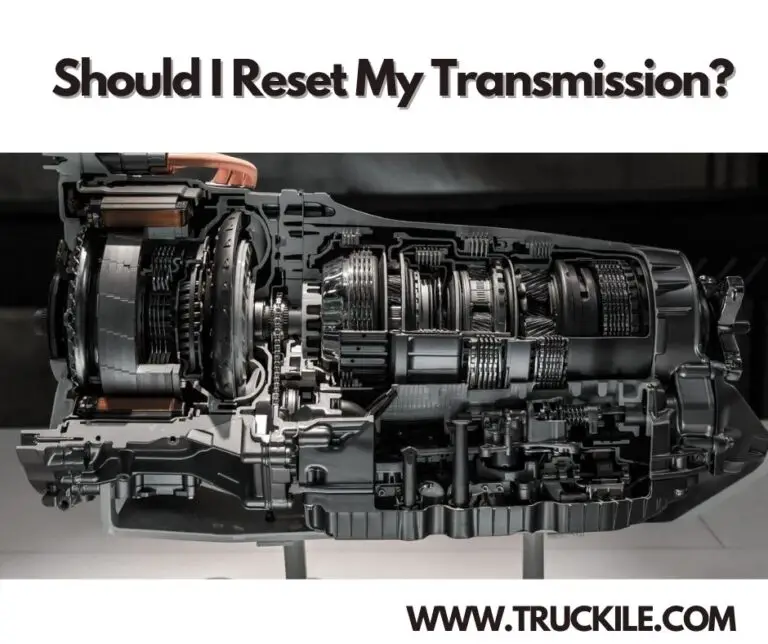Why Does My Car Jerk Forward When I Put It In Park?
Why does my car jerk forward when I put it in park? It’s a common problem for new car owners, but don’t worry. We have the answer for you.
Let’s proceed.
Why Does My Car Jerk Forward When I Put It In Park?
In most cases when the car lunges or jerks when you shift into gear, it’s due to mechanical gears not properly aligning or components in the driveline system (such as driveshaft, input and output shafts) being loose or worn out.
Why Does My Car Jerks When Shifting From Park To Reverse
There are many reasons why a car may jerk or hesitate when shifting into reverse, so it’s hard to provide a blanket solution. Here are a few possible causes, from the most common to the most obscure.
1. The vehicle is in park, but the shift lever isn’t fully seated. If you’re driving an automatic transmission car, this is definitely one of the first things you should check if your car jerks when switching from park to reverse.
All too often, drivers only partially engage the parking pawl inside the transmission, leaving it in between park and neutral. This makes it difficult for the car to get into gear, and can cause hesitation or rough shifting when moving from park to reverse (or drive).
2. The transmission fluid is low or dirty. If you own a car with an automatic transmission, you’ll need to make sure that your transmission has enough fluid. Low fluid levels can cause shifting problems, both when shifting into reverse as well as drive.
What’s more, because transmission fluid plays such an important role in lubricating your car’s internal components, low fluid levels can actually damage your transmission over time by causing internal parts to bind or seize up. Dirty fluid is another issue entirely. Dirty fluid contains particles of metal shavings.
What Does It Mean When Your Car Jerks When You Put It In Drive?
When your car jerks as you accelerate, there are two likely explanations. Either you have a dirty fuel filter or you need a tune-up.
A dirty fuel filter can be clogged with debris and dirt, and if the filter is clogged, it restricts the gas flow to the engine and causes performance problems, such as jerky accelerations. If this is the case, replacing the fuel filter will solve the problem.
If you’ve recently had your oil changed or performed other routine maintenance on your vehicle, the jerky acceleration may be due to an engine that needs a tune-up. A mechanic can check out your engine to see if your spark plugs need replacing or adjustment.
Why Does My Car Jerk When Shifting Gears With An Automatic Transmission?
Most of the time, a jerking transmission is a sign of your car having trouble shifting gears. There are various reasons why this could happen.
Automatic transmissions are designed to shift automatically, so if you have a bad shift solenoid, this could cause your vehicle to jerk when shifting gears. Shift solenoids keep the fluid pressure at its needed level for your automatic transmission to shift smoothly.
Without the proper fluid pressure, the gears won’t engage correctly and your car will experience a sudden jerk when it shifts. Solenoids are typically located inside the valve body of your transmission.
Another common issue that can cause cars to jerk when shifting gears is low transmission fluid. If there is not enough fluid in your vehicle’s transmission then you will notice harsh shifts, which can lead to jerking movements each time it shifts gears.
If you need to add fluid or the level is just below where it needs to be, then you may be able to drive around for a while without needing any repairs — but not much longer!
If you have checked the fluid level and it appears that everything looks great, then something else might be going on with your car’s powertrain system. You should take your vehicle in as soon as possible and have it diagnosed by an experienced mechanic.
Why Does My Car Jerk Forward When Starting?
When you start your car, if it starts up normally but then jerks forward before the engine has even had the chance to idle, there is a good chance that your transmission is to blame. There are a few possible reasons why this might be happening, but they are all associated with your transmission.
In order to understand this problem, you need to know how an automatic transmission works. The transmission is connected to your engine and routed through what is called a torque converter. The torque converter is like a clutch on a manual transmission. It engages your engine when you place the car into drive or reverse.
When you first start your car, it will take a second for the oil pressure in the system to build up. That is why you hear the engine revving when your foot is off the gas. It means it has oil pressure but it isn’t in gear yet because of that lack of pressure.
Once it does have the proper pressure built up, the torque converter will engage automatically, and that is what causes that jerk you feel when starting your car.
However, there are some other things that could be wrong with your car that would cause it jerk forward as well:
- Dirty Transmission Fluid
- Low Transmission Fluid Levels
Can Low Transmission Fluid Make Your Car Jerk?
Low transmission fluid can cause shifting issues, and in your case, it can cause jerking because the transmission is not getting enough fluid to change gears. Low transmission fluid does not occur overnight either. Low fluid will cause your transmission to overheat, which can in turn lead to more problems that are more expensive to fix.
Overheated transmissions often suffer from burnt bands, clutches and seals. If the transmission overheats enough times, the damage is catastrophic and you will need to replace the entire transmission or get a new vehicle. These types of repairs can cost thousands of dollars, so we suggest addressing any potential issue before they get serious.
So, if your car is jerking and you have low transmission fluid, you should check your vehicle’s owner’s manual for information on how much transmission fluid your vehicle needs and top it off accordingly.
You should then check that there are no leaks in your system by looking under the vehicle while it is parked or driving slowly around your block while checking the ground for any leaks. If there are no leaks, add more fluid as needed until you reach the manufacturer’s recommended level.
Why Does My Transmission Jerk When I Slow Down?
Car jerking when slowing is a sign that your transmission is malfunctioning. It could also be a sign that you have problems with your internal clutch or torque converter. In some cases, it may mean that you need to change the fluid in your transmission. If you are noticing a lot of jerking and shaking when you shift gears, you may have bad engine mounts. They may cause your entire vehicle to move.
Depending on how often the car jerks and shakes, you may need to make a few different repairs. You may be able to fix the problem yourself if the car jerks when slowing down or speeding up, but not all the time. However, if it happens regularly, it’s best to take it in for an inspection to get the proper diagnosis and repairs made by an experienced mechanic.
Why Does My Car Jerk Forward When I Put It In Park – Conclusion
As a recap of the response we gave to the question, Why Does My Car Jerk Forward When I Put It In Park?
In most cases when the car lunges or jerks when you shift into gear, it’s due to mechanical gears not properly aligning or components in the driveline system (such as driveshaft, input and output shafts) being loose or worn out.
Thanks for reading.

Joe lives and breathes cars and trucks. After many years working in the Auto industry, he decided that it is only right to share his knowledge with the public. As a qualified expert in trucks and cars, he started working for Truckile.com and is the main editor and publisher.






